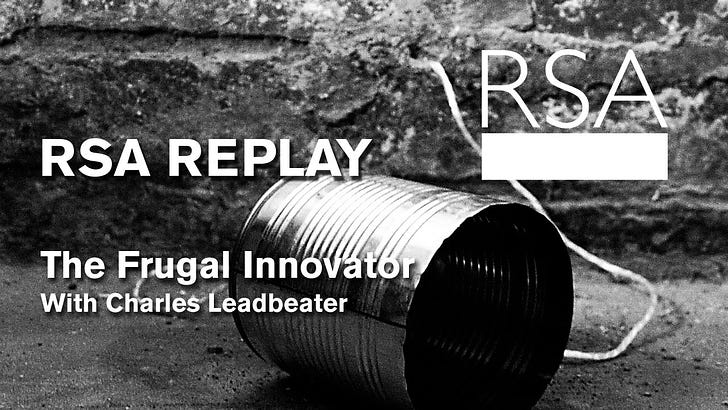Movement building and the climate emergency
How might a movement building mindset help us to involve more people in creating bottom-up solutions to the climate emergency?
The city council in the city where I live, Leeds, declared a Climate Emergency in 2019.
And at an Executive Board meeting this week they gave an update on what they’ve been doing since, which you can see below — from about 35 minutes in.
The report itself is available to read here. I had a read of it before the meeting — and shared a few quick thoughts in the thread below.
The report outlines work that the Council is leading on in a range of areas, including energy, transport, housing and food.
There is so much more to do — and a theme running through the report is how greater ambitions are thwarted by a lack of government funding, and funding pots that have short application timescales, or even shorter delivery timescales.
Yet I think the council deserve a lot of credit for what they are managing to achieve, in challenging circumstances.
Responding to the report, one opposition councillor at the meeting said,
“There’s a lot of great work being done in there, but are the public aware of what you’ve done? …. We are getting a bit worried … as to the general direction you’re taking this. We are not taking our residents along with us.”
Now I’ll leave local councillors to discuss what may or may not be happening when it comes to the specifics of local community engagement — but I think there is an interesting broader point raised here.
It’s tempting for people like me, who are convinced we have to act quickly and at scale in response to the Climate Emergency, to believe that most other people are on board too.
It’s also pretty clear that more and more people are convinced that we’ve got a problem, that humanity has played a big part in creating that problem, and that we’ve got to do something about it, fast.
And, as the Leeds Climate Change Citizens Jury process suggested, when you give a representative group of people the opportunity to understand the issues in real detail, they are clear about what needs to be done.
But we know full well from our work at Zero Waste Leeds that whilst there might be a significant minority of people who are engaging in these issues on a daily basis, and are taking actions in their daily lives, the majority of people aren’t as engaged.
It’s not that people don’t care. Of course, there’s a minority of people who don’t think there’s an issue here, and/or that we shouldn’t act to sort things out. And there are political voices — getting louder once again — that say the same.
But most people have just got too many things going on in their lives to fully focus on exactly the kind of big, long-term issue that our brains tend to not be very good at dealing with.
And if we want to have a fighting chance of solving the big challenges that we’re currently facing, then we need that majority of people engaged and taking action.
This is where ideas around movement building, that we’ve been exploring since we set up Zero Waste Leeds in 2018, are, I think, relevant.
I wrote recently about how we’ve taken a movement-building approach to uniform sharing — design thinking that has resulted in over 100 hyperlocal exchanges being set up across Leeds in just over 12 months.
Instead of doing things ourselves, we’ve supported other people to get on and do things. We’ve helped people to see that by acting together, they can benefit eachother, and themselves.
And, crucially, we have worked with people to come up with a solution to a problem that has big social benefits — as well as environmental impacts.
With it typically costing around £250 a year to buy uniform and PE kit, it’s easy to appreciate the social impact of a project that shares free school uniform, particularly during a cost-of-living crisis.

And by adopting a model that is about mutual aid, we’ve helped to build the kind of conviviality that Charles Leadbeater understands can be so valuable in organisations that take a movement-building approach. Our uniform project is built on existing local community relationships — but it also strengthens them.
And this for me is central to how we will manage to respond to the enormous social challenges that we face — including the Climate Emergency.
There isn’t always a simple solution like a uniform exchange. But with a movement building mindset, your starting point is always:
How do we encourage more people to get involved?
In other words, how do we make this relevant to people? Meaningful? Something they can relate to? Something that improves their life in one way or another?
Taking it back to the original point made in yesterday’s meeting, I have no doubt that there are plenty of people in Leeds who have little idea what the council is doing about the climate emergency.
Many will also be unsure about what they can do themselves.
We need to be honest about that — and then, I would argue, think about how, over time, we can encourage more people to take notice, get involved, and, together, work things out, from the bottom up.
A movement-building mindset can really help.




